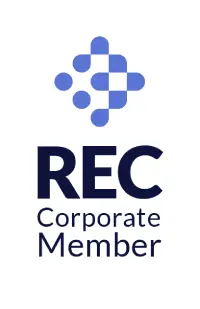According to one of the recent reports, a nurse named Sana Abbas, who was CNA split her work weeks between two locations when the pandemic first began. She questioned how she could continue working in the field she adores while making ends meet. She went through a lot of trouble to sustain herself.
But to get through this situation, she started working for Gale Healthcare Solutions, a tech business with headquarters in Tampa, due to her decision to change. By taking up shifts at a predetermined contract rate, the software enables nurses to move between facilities. Contract nurses get higher hourly wages, significant overtime pay, and paid holidays in exchange for the uncertainty of the number of working hours.
Michael Bumbach, a clinical assistant professor at the University of Florida’s College of Nursing, asks further, what would you do if someone gives you twice as much money for the same job? You will opt for it?
Further, Abbas claimed that she now rarely has a booking for fewer than 40 hours per week. Her hourly wage fluctuates between $20 and almost $40 on holidays. It’s been over six months since she became a registered nurse at 29.
Even after COVID-19, the nursing field is still in turmoil. By 2035, the Florida Hospital Association predicts a shortage of nearly 60,000 nurses in the state. Due to their extreme overcrowding, 75% of nursing facilities in the US are now employing contract nurses.
During the epidemic, when traveling nurses became the norm for institutions owing to the COVID-19 attack, Gale Healthcare, founded in 2016, under CEO Tony Braswell, blossomed. According to the firm, the app is currently used by 31,000 Florida nurses and nearly 600 Florida facilities.
Read this to know more, ICN Hot News: The Nursing Shortage is a Global Health Emergency.
Gale Healthcare has gained good growth but wasn’t limited to that growth. Gale’s vice president of corporate affairs, Sandra Germann, revealed that it fired between 80 and 90 workers at the beginning of this year.
The advancement of machine learning and artificial intelligence to better forecast the behavior of nurses and facilities won’t be impeded by layoffs, which is a crucial objective for the company.
There is a change in strategy among large suppliers. According to representatives from BayCare and HCA, filling shifts is generally done using an internal pool of part-time employees. However, other adjustments are on the way for nurses and patients.
Instead of hitting the call button, patients may now speak directly to the requisite nurse on the phone at two of BayCare’s 16 Florida hospitals thanks to speech technology made possible by AVIA, a company that develops health tech, and Amazon’s voice assistant Alexa.
Tech is becoming more sophisticated in new hospitals, the lights, air conditioning, blinds, music, and TV can all be controlled by simple voice commands in smart rooms with Alexa capabilities.
According to Bumbach, the sector’s major issue is poor pay for full-time employees. Contract and patient-centered technology do not address this issue. According to him, paying people is the simplest method to convince them to stay.
We hope this has helped you in understanding how Tampa Bay’s health tech boom is aiming at the nursing shortage. As nurses are in short supply, hospitals are looking to hire experienced nurses to fill the gap.
If you are one of those nurses looking to settle abroad, we at Dynamic Health Staff can help you grab the best opportunity and settle down in your dream location. Contact us today at +919810017608 or email enquiry@dynamichealthstaff.com.
Follow the most recent trends, news, and job updates by subscribing to our newsletter. Click here to visit our website, Dynamic Health Staff!






